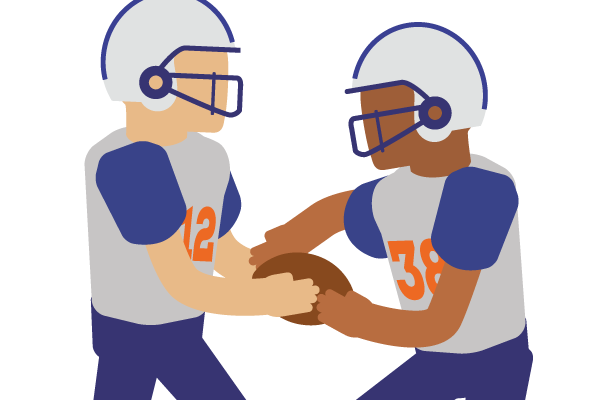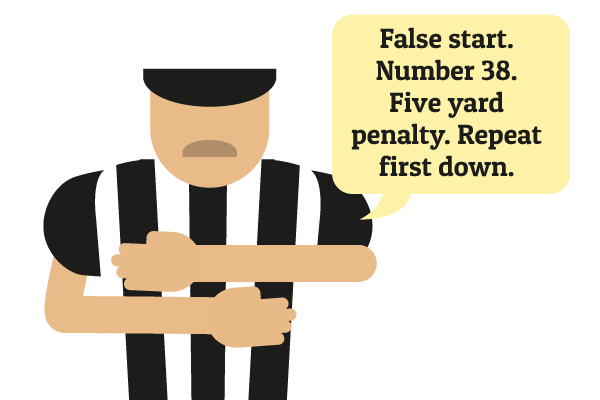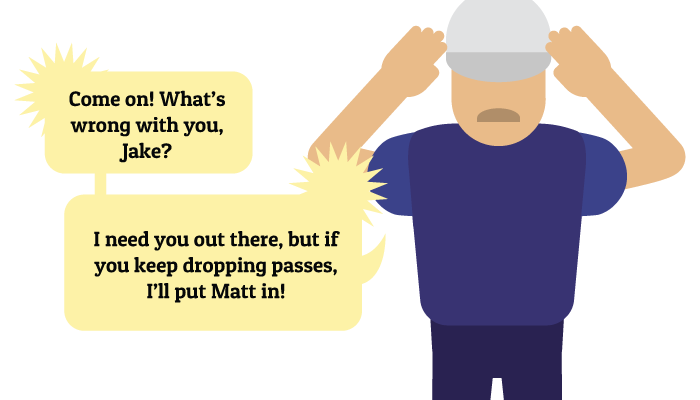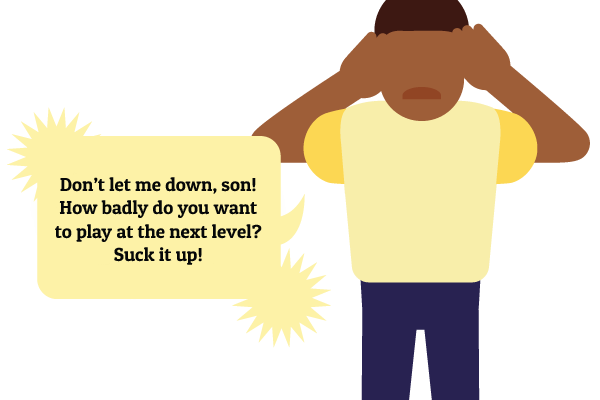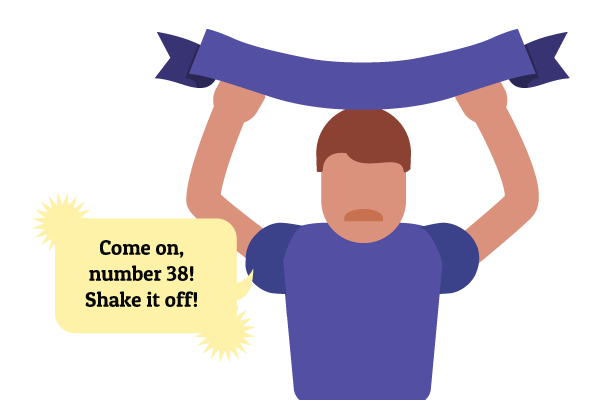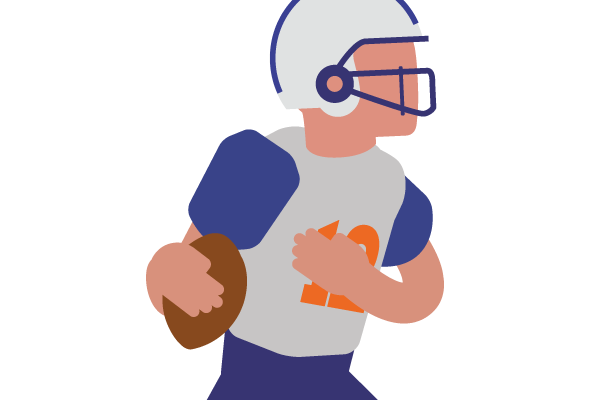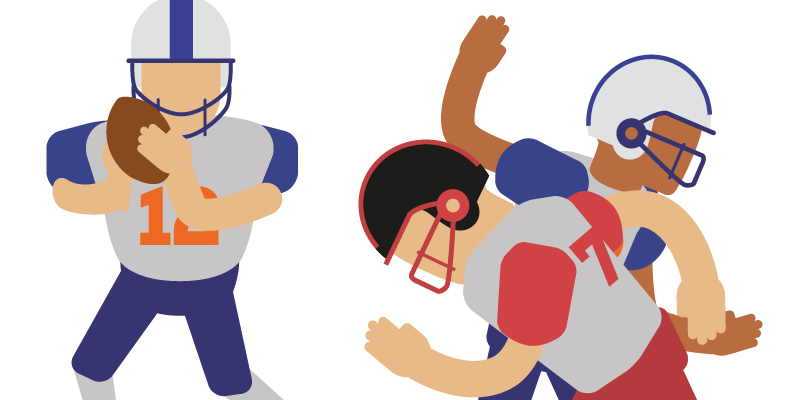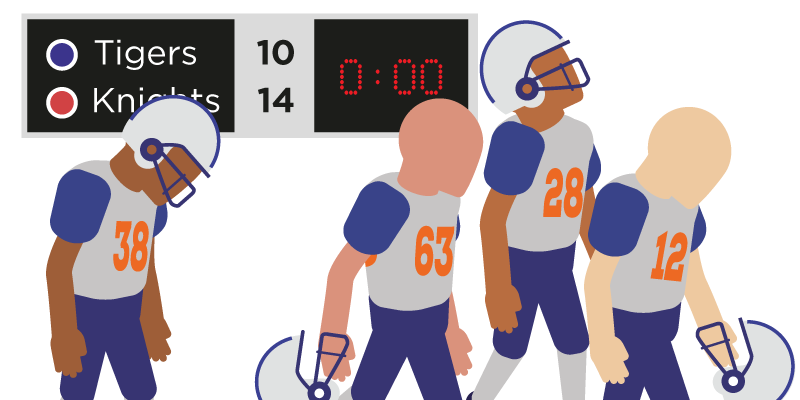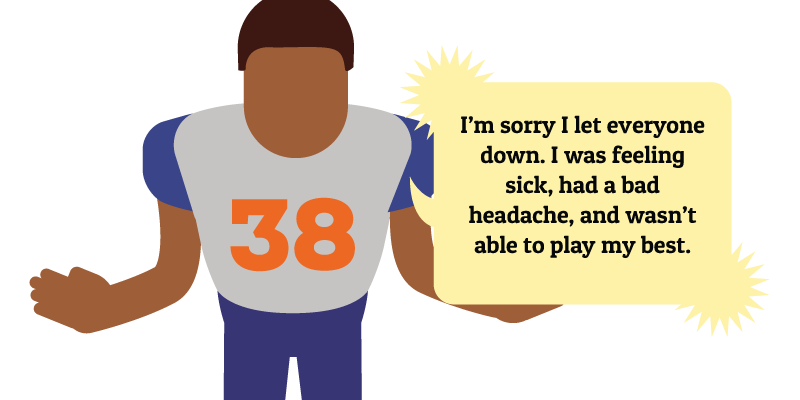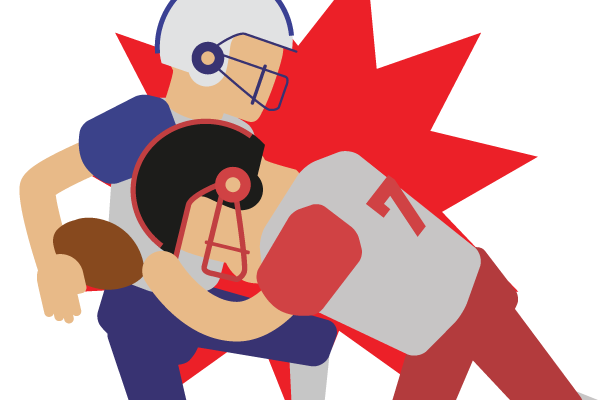
Feeling a bit woozy after that hit. Funny, because I didn’t get hit all that hard.
I’m still not feeling all that great. I’m getting a headache and feeling a bit dizzy, but I probably just got dinged. I just need a play or two to clear my head and I’ll be fine.
My head is throbbing and now I forgot the snap count. But I don’t want to come out of the game, and I can’t tell my teammates or the coach that I’m having trouble remembering things. I don’t want to let them down.
Hey, Jake, are you okay? You almost got your head handed to you. You ran the wrong route.
I’ll be okay. Just got a little ding a couple of plays ago.
I want you out here, man. We need you! But you’re not doing your job, and you’re hurting the team, dude. Maybe you should have the athletic trainer check you out?
Something's not right with Jake, but he’d get really mad if I told the coach or athletic trainer to check him out, and I wouldn’t want anyone to snitch on me. Our season is on the line, but it’s not up to me to tell the athletic trainer.
91%
Percentage of college athletes who recognize amnesia as symptom of concussion
88%
Percentage of college athletes who recognize dizziness as symptom of concussion
Dizziness is reported as an on-the-field symptom by 81% of athletes diagnosed with concussion. Concussed athletes who report dizziness are 6 times more likely to have a protracted concussion recovery.
88%
Percentage of college athletes who recognize headache as symptom of concussion
Headache is reported as an on-the-field symptom by 95% of athletes diagnosed with concussion.
64%
Percentage of college athletes who recognize nausea as symptom of concussion
Nausea is not strongly linked with concussion because it may be the result of other things, such as dehydration or indigestion.
70%
Percentage of possible concussions not reported by high school athletes because not considered serious enough to report
16.9%
Percentage of high school students reporting all concussive bell-ringer events to a coach or medical professional
12.3%
Percentage of bell-ringer events reported by high school athletes
22.8%
Percentage of concussions or bell-ringer events reported by high school athletes to a coach or medical professions which occur during games
53%
Percentage of high school athletes who say they would always or sometimes continue to play with a headache resulting from an injury
40%
Percentage of high school athletes who say they would tell a coach immediately if they were experiencing concussion symptoms
Not wanting to come out of a game or let the coach or teammates down are among the top reasons athletes give for not immediately reporting concussion symptoms. Athletes who delay reporting concussion symptoms average five days longer to recover and are twice as likely to take more than 8 days to recover.
Athletes who feel pressure from coaches, parents, and fans to play after a head impact are less likely to report symptoms of future suspected concussion.
An athlete who believes that a teammate who continues to play with a concussion is at risk of serious injury or hurt their team’s chances are winning is much more likely to encourage him to report concussion symptoms.
Even athletes who perceive there to be a threat to health or athletic performance or to a team goal like winning are less likely to encourage a teammate to seek help or alert the team’s coach or medical personnel if they think that teammates might disapprove.


